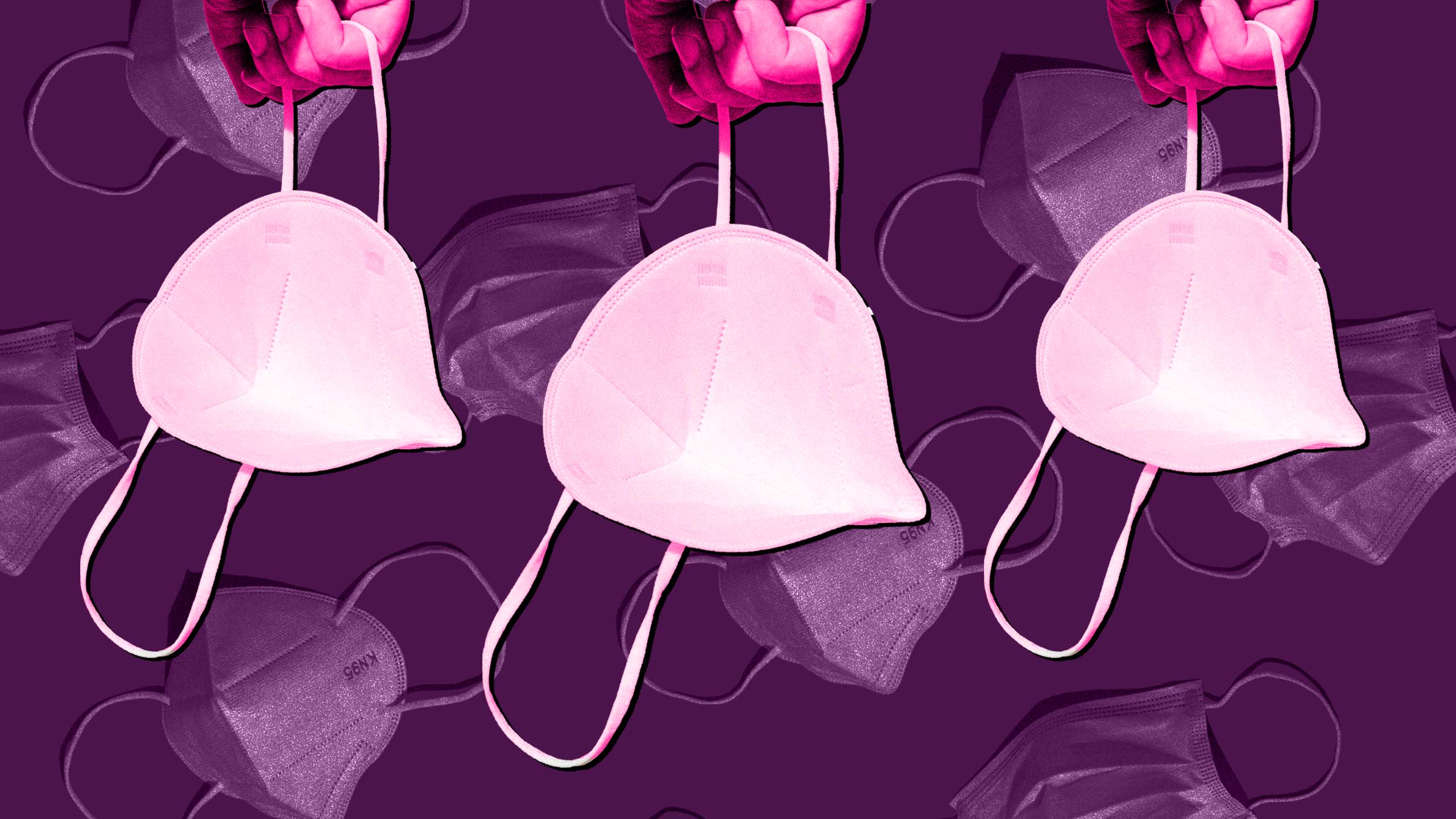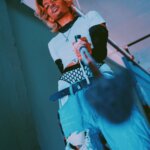A mix of seasonal depression and the upcoming holiday season has always made the start of winter a lonely time for me. This year is harder however, as I try to dodge more than bigoted family, but also exposure to COVID-19, while attempting to process the collective and personal trauma of the last few years.
As of the end of November, Canada was averaging about 15,000 new cases and nearly 300 deaths weekly, while my provinces masking guidelines are essentially: “We won’t stop you from masking, if that’s what you want.” During the last week of November, nearly 7,000 deaths were reported worldwide. Mainstream news outlets are continually optimistic and public services continue to lift mandates even as over 5,000 people in Canada alone were hospitalized for COVID-19 for the same period.
The queer community felt fractured long before COVID-19 showed up, but the pandemic has provided a lens through which the divides have been made unflinchingly clear. Much of the rhetoric and actions coming from more privileged individuals within my communities feel opposed to what I thought queerness represented—a refusal to aspire to normalcy.
This lens is now something that’s keeping me safe from more than just COVID-19. Now I don’t accept any harm inflicted by people who prioritize their need to be seen over my basic survival. And setting that standard is what’s been helping disabled queer people, like myself, to figure out who actually practises what they preach.
A safety social filter
It was trying to keep my community safe that forced me to confront how abusive my ex-nesting partner was this spring. I got COVID twice over the course of six weeks, even while sheltering in place, because my abuser had secretly stopped masking after government restrictions began to loosen. It wasn’t until they started to cruelly mock my disabilities when I asked them to isolate while I was symptomatic that I couldn’t be convinced I was overreacting. But I learned that this was not a unique experience to me.
“It’s really a weird form of gaslighting,” says Abi, a Black disabled trans artist and emerging burlesque performer based in Toronto, who prefers to be referred to by first name only.
They say they often feel like they have to question their reality when their friends claim to care about them, but continue to gather unsafely. For other sick and disabled queers across the globe, the concensus among us seems to be that seeing our community gather unsafely makes us feel Really Bad.
“I feel completely abandoned and betrayed,” says Gaby Sanchez, a South African queer disabled writer and disability justice activist. They say it’s a sentiment that was also shared by others based around the world that they heard speak at the November Sick-In-Quarters Hideaway event, a virtual pandemic support gathering for high risk people.
Sanchez says that seeing a lot of queer people gather unsafely, some even before regulations were lifted, and the defensive way organizers dismissed their safety concerns, made them realize how toxic and unsafe their local LGBTQ2S+ community is for them.
“It’s especially complicated as a dark-skinned Black trans person,” Abi says. They say that if someone isn’t willing to wear a mask to protect them, it makes them wonder if they can trust that person to protect them from other violences they may face targeting their other identities.
Now they say they find masking sexy, and even incorporate it into their burlesque acts because it helps them identify who may actually be interested in welcoming and protecting them.
Safety buzzwords or practice
It seems much of the queer community prides themselves on their inclusivity and safety-centred politics. But the unmasked gatherings being posted unabashedly across social media feeds are actively excluding parts of our own community.
“It’s frustrating to navigate trying to make money and staying safe,” says Hope Adler, a Toronto-based disabled Two-Spirit performer, parent and former front-line activist medic. When Ontario’s COVID-19 mandates dropped, it not only made it difficult for Adler to do their job safely, but also to see their child who lives in Ottawa with her other parent.
It’s not just disabled and chronically ill community that are being left out, says Adler, but queer and genderqueer parents and queer and trans youth who often seek refuge in queer spaces. A person’s safety strategy lets Adler—who believes in the Indigenous teaching that our actions must be with care for the next seven generations—know who “doesn’t care whether [they] live or die.” Or whether they care about COVID-19’s mortality rates in youth, they say.
A lot of our community has shown the buzzwords that were heavily bandied around prior to the pandemic no longer seem to apply. Concepts like “safer spaces” and “harm reduction” meant to “keep each other safe” now seem to come with the caveat: except from COVID.
In the dance and rave communities, there used to be an emphasis on safer spaces before the pandemic, explains Heather Jane, a former Toronto-based rave promoter, now disabled by long COVID. But they only remember one conversation on access in the community before the pandemic.
Now they think the community is actively excluding immunocompromised and high-risk people. “I just wish people would say it with their whole chests,” they say.
Both Abi and I both find a similar pattern with sexual health and harm reduction rhetoric. Many people understand the harm that comes from coercing someone into breaking their boundaries around contraceptives or doing it without their knowledge. It’s the same for masking, but when others refuse to mask for an airborne virus, we can’t safely breathe around them. Abi describes how telling high-risk people to keep isolating to stay safe sounded a lot like abstinence-only sex-ed.
They also say some find it unreasonable to expect others to make a habit of talking about COVID-19 safety practices, but Abi notes the similarities to the resistance the trans community gets in making pronoun checks and gender-neutral language bare minimums in conversation.
COVID caution resists capitalism and patriarchy
While the LGBTQ2S+ community is politically and ideologically diverse, many from my communities often tout principles of anti-capitalism, feminism and antiracism as intrinsic to their queer identities. But the imperative to “return to normal” is asking us to return to capitalism, colonialism and patriarchy.
“The preciousness of work is rooted in ableism, and if we can’t make adjustments to our work in order for the safety and care of other human beings, then what are we even doing?” says Yolanda Bonnell, a Two-Spirit playwright, performer and producer.
“I can’t do a lot of the things I was able to do before, and I think that’s the case for a lot of people, but capitalism wants us to keep running on that hamster wheel,” she says.
Jane also points to a connection between how the most feminized labour, such as nursing, serving and teaching, have also been among the least protected against COVID-19 since the early days of the pandemic and still are, and how women are more likely to develop long COVID after being infected.
So, it makes sense that corporate queer events were some of the most unsafe. Both Bonnell and Adler managed COVID-19 safety protocols at all their events and neither had any outbreaks—which Adler says is something that many Pride events can’t claim. But I already knew my safety wasn’t a priority at many of those same events when organizers knowingly booked my abuser on their lineups.
Jane says they feel more embraced virtually by the disability justice community than they did at Pride events. Which makes sense when they not only were one of the few masked people there, but they were also getting dirty looks for wearing a button identifying them as high-risk.
Staying safe
While it was unanimous among the people I interviewed that masking makes a huge impact while being so easy to keep ourselves and others safe, instead of rehashing the same guidelines that have been recommended for nearly three years (like updated vaccines and online events), I will share this advice from Bonnell on setting COVID boundaries at events:
“A lot of people need to remember that you can ask for what you want. You don’t have to just say yes.”
While producers have to rely on venues to mandate COVID policies, ask for safety protocols or venues that enforce them when attending events and tell anyone who wants to see you how they can respect your health.
Heading into the holiday season, Jane says that we have to use the same practices we need when we protect ourselves from homophobic or transphobic family: set boundaries and cut off people who refuse to respect them.
If you’re finding your close relationships are making choices based on misinformation, use what resources you have to find ways to keep them informed. Sanchez, for example, used a Whatsapp group to connect accurate and accessible information with those not on social media.
As Jane says, “I hope we find new ways to connect safely as we go into another pandemic winter.”


 Why you can trust Xtra
Why you can trust Xtra


